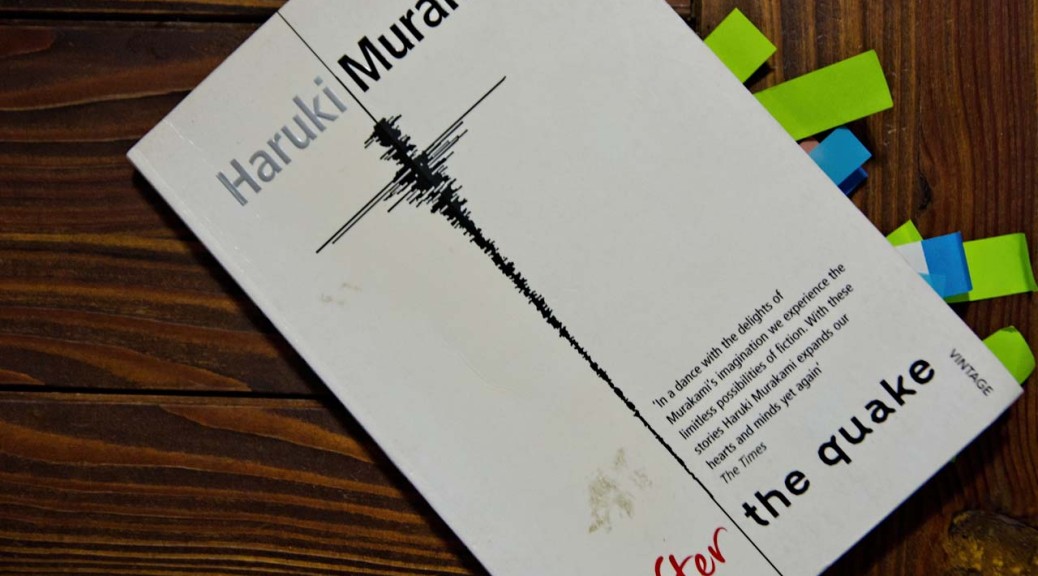Murakami, Haruki. After the Quake. Trans. Jay Rubin. London: Vintage, 2007. Print.
Landscape with Flatiron
Jack London “To Build a Fire”
“She transferred from one train to the next at random until she had come all the way from Tokorozawa to this little seaside town in Ibaraki Prefecture, a town she had never even heard of.” 28-29.
All God’s Children Can Dance
following the doctor down the deserted place. 54.
“And then it struck him what lay buried far down under the earth on which his feet were so firmly planted: the ominous rumbling of the deepest darkness, secret rivers that transported desire, slimy creatures writhing, the lair of earthquakes ready to transform whole cities into mounds of rubble.” 59.
“We take it for granted that the earth beneath our feet is solid and stationary. We even talk about people being ‘down to earth’ or having their feet firmly planted on the ground. But suddenly one day we see that it isn’t true. The earth, the boulders, that are supposed to be solid, all of a sudden turn as mushy as liquid.” 68.
Thailand
“From now on, little by little, you must prepare yourself to face death. If you devote all of your future energy to living, you will not be able to die well… Living and dying are, in a sense, of equal value.” 77.
“‘What you need now more than anything is discipline. Cast off mere words. Words turn into stone.”” 78.
Super-Frog Saves Tokyo
“As Nietzsche said, the highest wisdom is to have no fear.” 90.
“As Joseph Conrad once wrote, true terror is the kind that men feel towards their imagination.” 92.
“Apparently Frog was very fond of Anna Karenina.” 94.
“But as Ernest Hemingway saw so clearly, the ultimate value of our lives is decided not by how we win but by how we lose.” 98.
“”Fyodor Dostoevsky, with unparalleled tenderness, depicted those who have been forsaken by God… the ghastly paradox whereby men who had invented God were forsaken by that very God.”
Dostoevsky White Nights (1848).
Honey Pie
John Updike‘s short stories.
